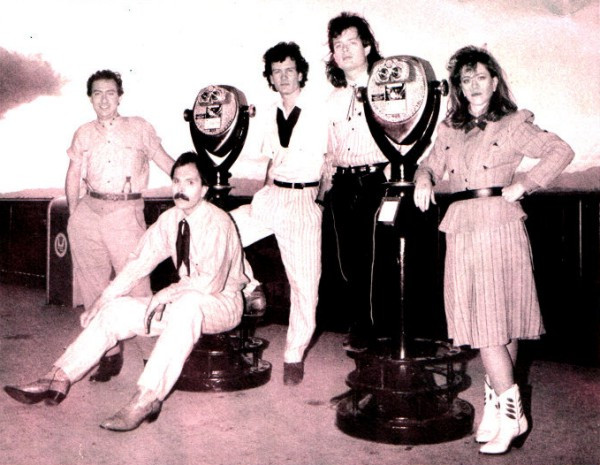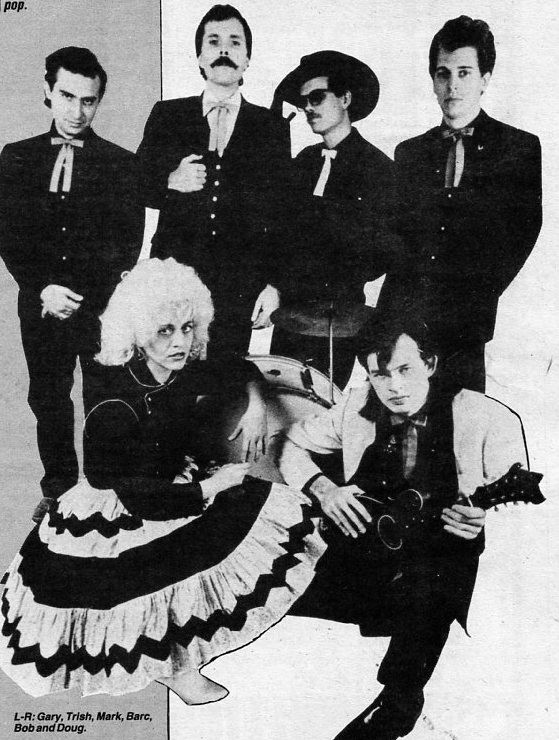Rubber Rodeo
Настоящее имя: Rubber Rodeo
Об исполнителе:
Rubber Rodeo was founded in Rhode Island in 1980, and initially consisted of Bob Holmes (vocals, guitars), Trish Milliken (vocals, keyboards), Gary Leib (synthesisers), Eddie Stern (pedal steel), Doug Allen (bass) and Bob's brother Barc Holmes (drums). Almost all were students at the Rhode Island School of Design, and lead singers Holmes and Milliken were also romantically involved. Bob Holmes later described the band as "a cross between Gene Autry and Devo". Others noted that when Milliken was singing, Rubber Rodeo sounded something like a countrified Blondie. Most of the band's material consisted of original songs composed by Bob Holmes, or by the team of Holmes and Milliken. However, the group also recorded takes on country and western classics such as Ennio Morricone's "The Good, The Bad and The Ugly" and the Patsy Cline standard "Walkin' After Midnight". As well, their first independently released single was a cover of Dolly Parton's "Jolene" in 1981. Shortly after this single was released, pedal steel guitarist Stern left the band, to be replaced by "Easy" Mark Tomeo. After two independent EP releases, on Eat Records, in 1982 and 1983, the band recorded their full-length debut Scenic Views for Mercury Records. The LP's first single "The Hardest Thing" video received significant MTV airplay. The album's second video "Anywhere With You" also received MTV play, and the "Anywhere With You" single was a hit in the US. Later in 1984, the band picked up a Grammy nomination for a long-form video they made for Scenic Views. The video was produced by Second Story Television and written and directed by David Greenberg. The video release also included the music video for their early Eat Records single, "How The West Was Won". Before recording their follow-up album, the band's line-up was reshuffled again. Tomeo departed, to be replaced by Ray Gantek on pedal steel and dobro, and Hal Cragin joined the band, taking over for Doelp on bass. The band's second album, 1986's Heartbreak Highway, was produced by Ken Scott, who had previously produced albums by David Bowie and Devo. The group soldiered on for a while, with Reeves Gabrels taking over from Gantek as Rubber Rodeo's steel guitarist. The band split up by the end of the 1980s, with their final recording appearing on a 1991 tribute album honouring Duplex Planet poetry naif Ernest Noyes Brookings. Holmes and Milliken's marriage also came to an end in the 1990s. Bob Holmes went on to a successful production career for artists ranging from David Bowie to Nils Lofgren. Both Doug Allen and Gary Leib, meanwhile, drew upon their art school backgrounds and became noted cartoonists. Elsewhere, Reeves Gabrels moved to London and joined David Bowie's band Tin Machine.

